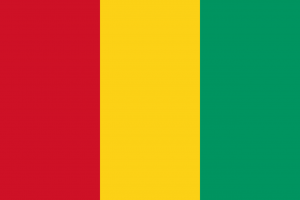Difference between revisions of "Language/Susu/Grammar/To-have"
Jump to navigation
Jump to search
| Line 11: | Line 11: | ||
== To have == | == To have == | ||
The na + personal pronoun + yi plays the role of the verb | The <code>na + personal pronoun + yi</code> plays the role of the verb “to have”. | ||
It is conjugated as follows: | |||
Revision as of 13:56, 31 May 2022
Verb "to Have" in Susu
Hello Susu learners,
➡ In today's lesson you will learn how to use the verb "to Have" in Susu language.
Happy learning!
To have
The na + personal pronoun + yi plays the role of the verb “to have”.
It is conjugated as follows:
| Tara na n yi | I have a brother /sister |
| Tara na i yi | You have a brother/ sister |
| Tara na a yi | He/She has a brother /sister |
| Tara na muxu yi | We have a brother/sister |
| Tara na won yi | |
| Tara na wo yi | You have a brother /sister |
| Tara na e yi | They have a brother/sister |
N.B. : Tara can be replaced by any noun :
Ex. :
- Banxi na n yi
I have a house
- xunya na n yi
I have a brother/sister
The negation
Forme B is the one most then used, as it is simpler.
| A | B |
| Tara mu na n yi | Tara mu n yi |
| Tara mu na i yi | Tara mu i yi |
| Tara mu na a yi | Tara mu a yi |
| Tara mu na muxu yi | Tara mu muxu yi |
| Tara mu na won yi | Tara mu won yi |
| Tara mu na wo yi | Tara mu wo yi |
